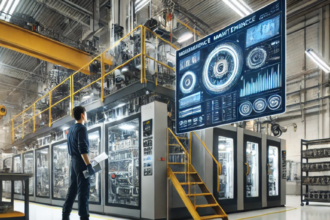According to GoCodes, deferred equipment maintenance costs up to 10x more than regular maintenance.
Keeping any kind of vehicle in good shape is no small feat. That goes double for the heavy equipment company which helps keep your workforce functioning.
In other words, even a few minutes of unplanned downtime can cost your business a massive amount. It’s so important to focus your equipment maintenance strategy on reducing downtime in any way you can.
Keep reading for a few simple-to-follow heavy equipment maintenance tips. That you can use today to stay ahead of potential issues.
1. Establish a Maintenance Schedule
One of the best ways to avoid costly repairs is to establish a regular maintenance schedule. This schedule should include both routine checks and more comprehensive servicing.
Depending on how often your equipment is used, you may need to service it weekly, monthly, or even quarterly.
But, it’s important to perform at least a cursory inspection of your equipment after each use. This is to ensure there are no immediate concerns.
2. Keep Maintenance Records
Creating a maintenance schedule is only half the battle. You also need to keep meticulous records of all the servicing you’ve performed.
Not only does this provide a handy reference for future maintenance. But it can also help you spot patterns when certain issues occur. This information can be invaluable in preventing expensive repair company visits.
3. Use the Right Parts and Fluids
When servicing your equipment. Be sure to use the correct parts and fluids specified by the manufacturer.
Using inferior parts can lead to premature failure and void any existing warranties you have.
All the moving parts in your heavy equipment rely on fluid to function properly. This includes engine oil, coolant, and hydraulic fluid. Make sure that these fluids are always at the right level.
If they get too low, it will cause friction and heat, which can damage the parts. If they get too high, it can cause leaks.
4. Keep it Clean
One often-overlooked aspect of heavy equipment maintenance is keeping the machine clean. This is especially important for equipment that’s used outdoors as it can quickly become caked with mud and debris.
A simple hose-down after each use can go a long way toward prolonging the lifetime of your equipment.
5. Regular Safety Checks
In addition to general maintenance, it’s also important to perform regular safety checks on your equipment. This includes checking for loose bolts and wearing safety gear when operating the machine.
These construction services are available at EMF construction.
6. Check the Filters
The filters in your heavy equipment play an important role in keeping the fluids clean.
Over time, they will get clogged with dirt and debris. This can cause restricted flow and reduced efficiency. So, it is important to check the filters regularly and replace them when necessary.
Perform Preventive Heavy Equipment Maintenance
If you want to keep your heavy equipment in top condition, follow these heavy equipment maintenance tips.
Check the fluids regularly., clean and lubricate moving parts, and inspect the tracks and tires.
By taking care of your equipment, you can prevent costly repairs and downtime. Preventive maintenance refrains you from buying heavy equipment.
Find these maintenance tips helpful? Check the rest of our blog for more valuable content.















